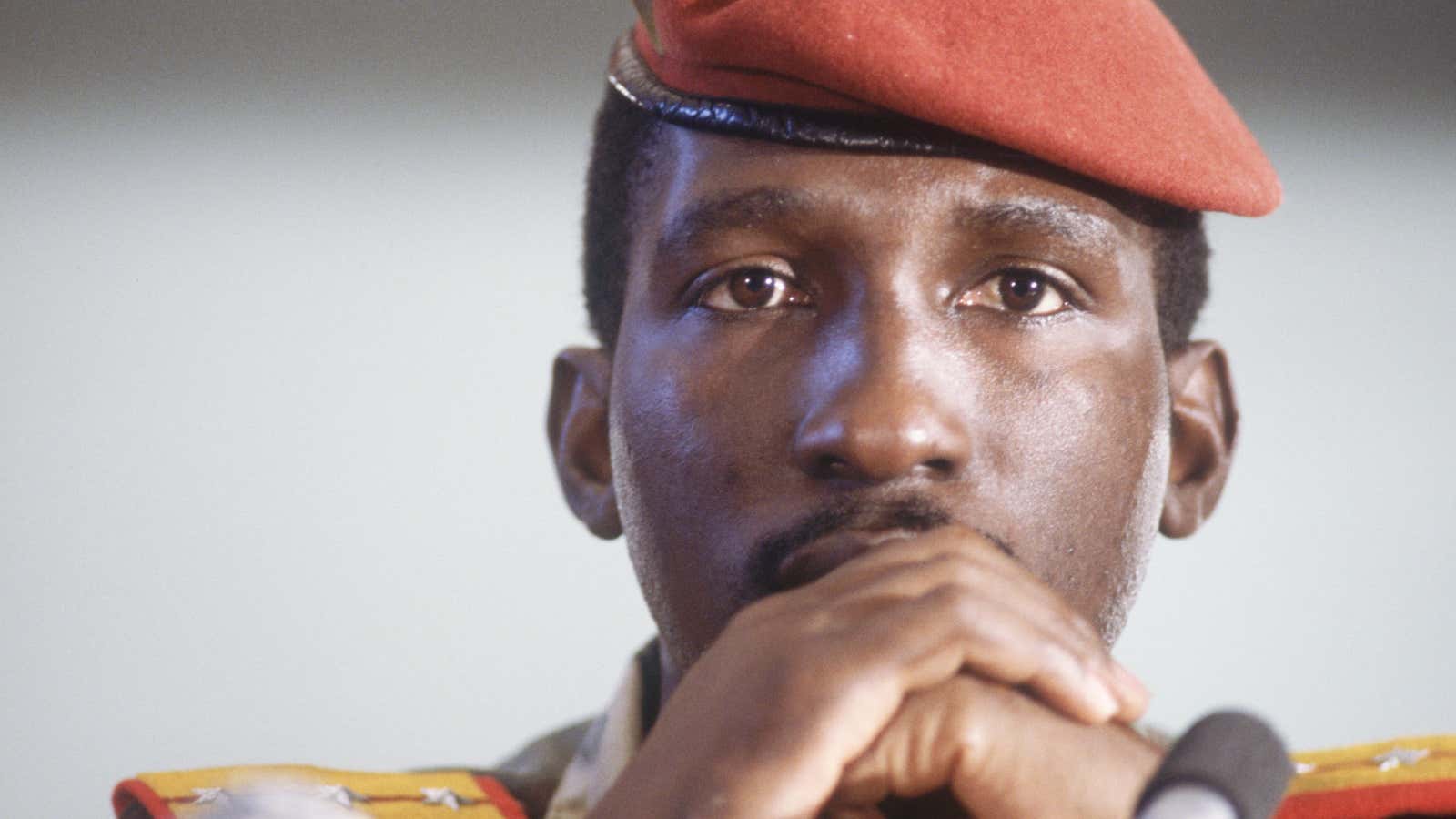Thirty years after the assassination of Africa’s last revolutionary leader, Thomas Sankara, the front cover of this week’s edition of the pan-African magazine Jeune Afrique is entitled “Who Killed Sankara?” The question has swirled since October 15, 1987 when the charismatic army captain was killed in a bloody coup in Burkina Faso which brought to power his one-time close friend Blaise Compaoré.
Over the years, theories about conspiracies involving Compaoré, Liberian rebels, France and, late presidents Felix Houphouet Boigny of Cote d’Ivoire and Muammar Gaddafi of Libya, have done the rounds.
“We are hopeful—although it has been 30 years that this issue has not been elucidated—that we will be able to find a solution, a definitive ruling, to address this problem,” Burkina President Roch Marc Christian Kaboré declared this week in a press conference (French).
Compaoré blocked any attempt to seek the truth about Sankara’s murder during his 27 years of rule. For example, his regime issued a death certificate claiming Sankara died of natural causes.
Notwithstanding, both Compaoré and his right hand man, Gilbert Diendéré, publicly claimed soldiers loyal to them but acting on their own killed Sankara in self-defense after the latter resisted arrest. However, Compaoré’s October 2014 ouster from power removed the restraints, and a docket was opened and an investigating judge assigned.
Since December 2015, Compaoré, who lives in exile in Cote d’Ivoire, and several former soldiers including Diendéré, have been charged with murder and concealment of a body. The investigating judge has questioned a number of persons of interests, detained suspects and issued arrest warrants for others at large. The same judge has also issued a formal request to the French government to declassify national security archives related to the assassination in order to address questions about France’s alleged role in Sankara’s death.
As promising as these steps have been, significant political challenges could obstruct the road to justice. France has so far ignored the formal request to submit its archives. Cote d’Ivoire, who exerts heavy dominion over Burkina Faso, granted Compaoré Ivorian citizenship to shield him from extradition. Finally, the long association and ties between Kaboré and Compaoré before the two men fell out raises is an inconvenient detail. Accordingly, while it is possible that the trial will reveal new details, it is unclear if it will indeed achieve its stated goal of bringing closure to this historic murder.
What is clearer is Burkinabe authorities’ pledge to rehabilitate Sankara as a national hero. The Compaoré regime sought to denigrate Sankara and erase his memory from public life. However, earlier this month, Kaboré participated in a public ceremony with former Ghanaian president, and friend of Sankara, Jerry Rawlings, to kick off a fund to build a memorial in Sankara’s honor.




